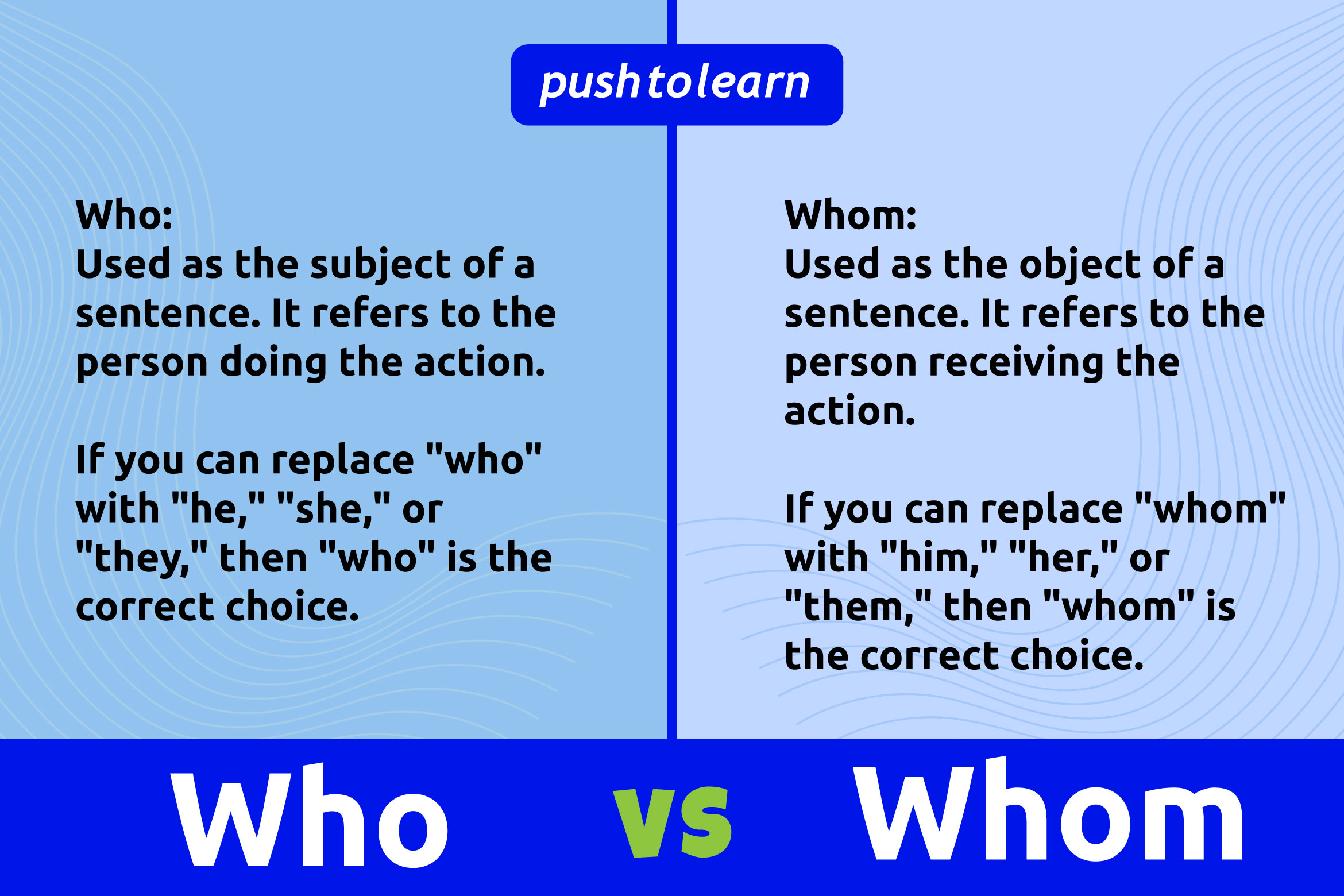by PushtoLearn
Who vs Whom
Table of Contents
This trick helps identify the correct form without needing to know subject/object rules.
What Are "Who" and "Whom"?
⭐ Who: Used as the subject of a sentence. It refers to the person doing the action.
⭐ Whom: Used as the object of a sentence. It refers to the person receiving the action.
Here’s an easy way to remember this:
Who = Subject (He/She/They)
Whom = Object (Him/Her/Them)
Let’s look at these in more detail.

How to Use "Who"
"Who" is used when referring to the subject of a sentence—the person doing the action.
Examples:
➡️ Who is coming to the party?
Here, "who" is the subject; it’s asking who will do the action of coming.
➡️ Who made this cake?
In this sentence, "who" is doing the action of making the cake.
Tip:
If you can replace "who" with "he," "she," or "they," then "who" is the correct choice.
How to Use "Whom"
"Whom" is used when referring to the object of a sentence—the person receiving the action.
Examples:
➡️ Whom are you going to call?
In this question, "you" is the subject doing the action, and "whom" is the object receiving the action (the one being called).
➡️ To whom did you give the book?
Here, "whom" is the object receiving the action of being given the book.
Tip:
If you can replace "whom" with "him," "her," or "them," then "whom" is the correct choice.
Common Errors
Mixing up "who" and "whom":
Many people use "who" when they should use "whom" because "who" is more common in everyday speech.
Omitting "whom" entirely:
In informal speech, people often avoid "whom" and use "who" instead. While this is widely accepted in casual contexts, it's good to know the proper use, especially in formal writing.
Examples of Common Errors:
❌ Incorrect: Who should I ask for help?
✔️ Correct: Whom should I ask for help?
❌ Incorrect: Who did you send the email to?
✔️ Correct: Whom did you send the email to?
Everyday Use
In everyday conversation, "who" is more commonly used, even in places where "whom" would be grammatically correct. In formal writing or when aiming for proper English, it's important to use "whom" correctly.
FAQ
Can I always use "who" instead of "whom"?
In casual speech, people often use "who" instead of "whom," but in formal writing, it’s best to use "whom" correctly when referring to the object.
Is it wrong to use "whom" in questions?
No, using "whom" in questions is correct when it refers to the object of the action.
How can I easily decide between "who" and "whom"?
Use "he/she/they" for "who" and "him/her/them" for "whom" to test which one fits.
Why is "whom" less common?
"Whom" is less common because many people find it formal or old-fashioned, so they often stick with "who."
What if I don’t know if it’s the subject or object?
Look for the verb: if the person is doing the action (subject), use "who." If the person is receiving the action (object), use "whom."


